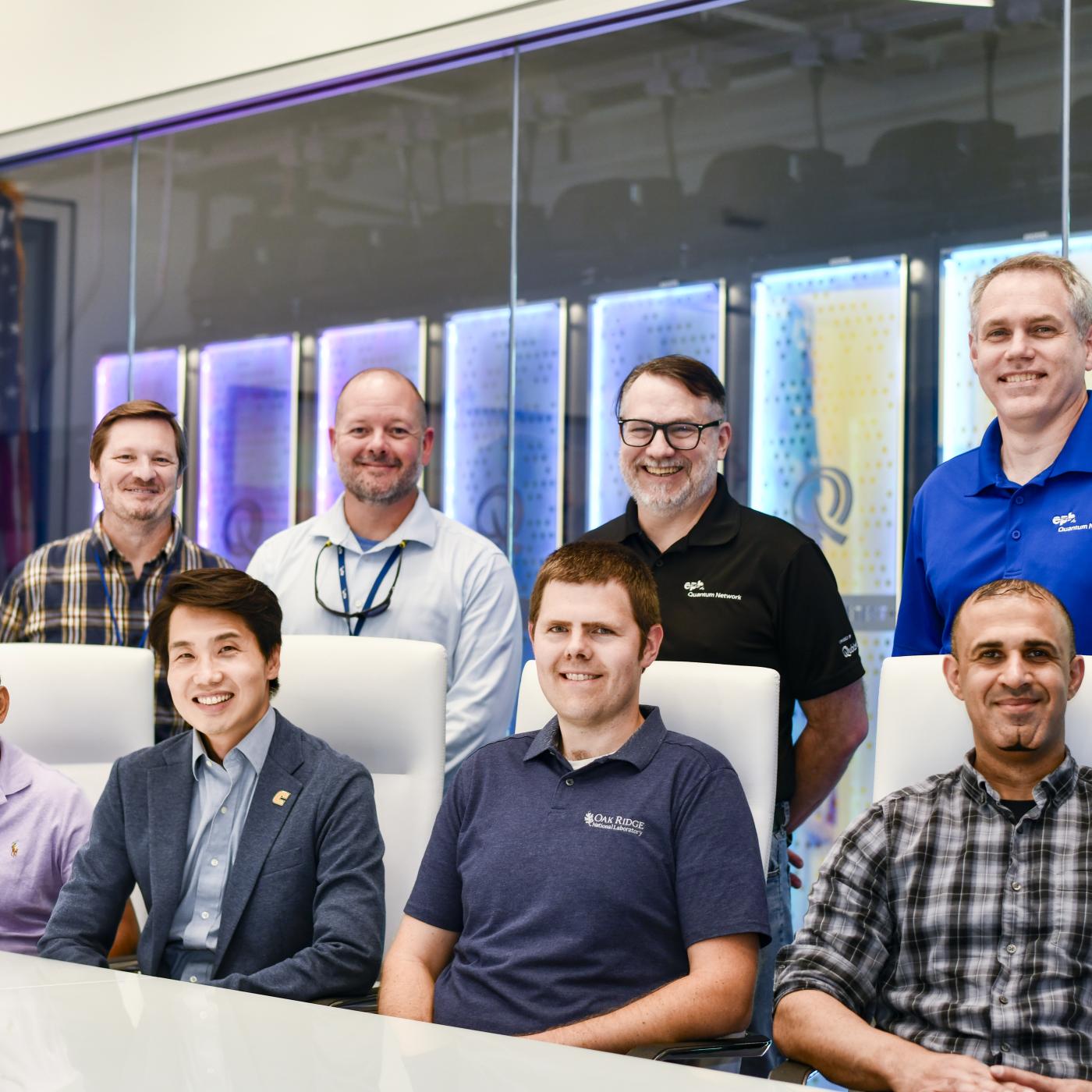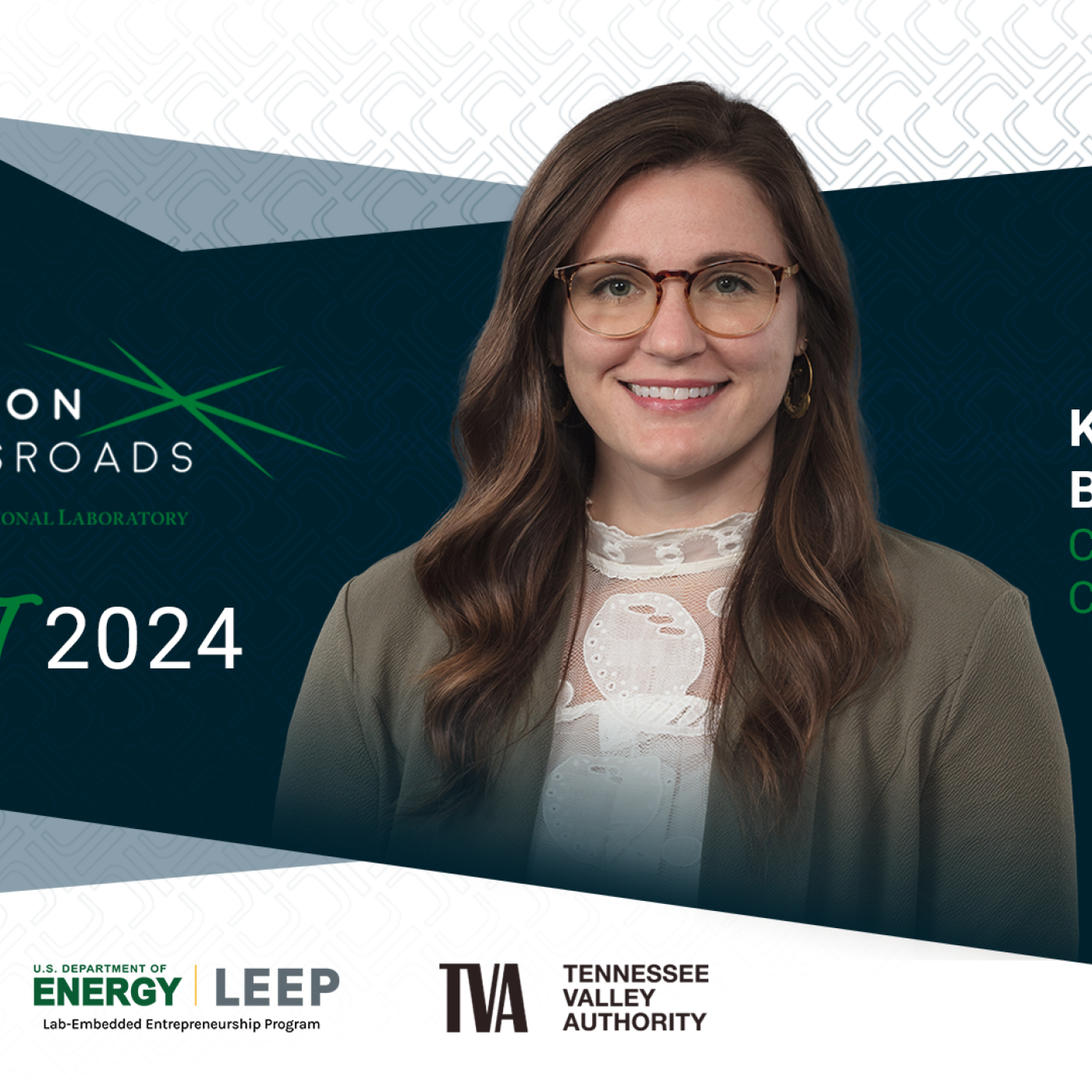
Filter News
Area of Research
- Advanced Manufacturing (10)
- Biology and Environment (45)
- Biology and Soft Matter (1)
- Clean Energy (107)
- Climate and Environmental Systems (1)
- Computer Science (2)
- Electricity and Smart Grid (1)
- Fusion and Fission (7)
- Isotope Development and Production (1)
- Isotopes (24)
- Materials (55)
- Materials for Computing (8)
- National Security (24)
- Neutron Science (15)
- Nuclear Science and Technology (9)
- Quantum information Science (1)
- Supercomputing (54)
News Type
News Topics
- (-) 3-D Printing/Advanced Manufacturing (88)
- (-) Climate Change (74)
- (-) Cybersecurity (31)
- (-) Energy Storage (73)
- (-) Frontier (41)
- (-) Isotopes (49)
- (-) Microelectronics (4)
- (-) Space Exploration (15)
- Advanced Reactors (18)
- Artificial Intelligence (84)
- Big Data (37)
- Bioenergy (74)
- Biology (82)
- Biomedical (48)
- Biotechnology (20)
- Buildings (38)
- Chemical Sciences (59)
- Clean Water (17)
- Composites (19)
- Computer Science (149)
- Coronavirus (34)
- Critical Materials (16)
- Decarbonization (67)
- Education (5)
- Element Discovery (1)
- Emergency (2)
- Environment (141)
- Exascale Computing (40)
- Fossil Energy (5)
- Fusion (46)
- Grid (41)
- High-Performance Computing (79)
- Hydropower (5)
- ITER (4)
- Machine Learning (36)
- Materials (104)
- Materials Science (100)
- Mathematics (7)
- Mercury (9)
- Microscopy (36)
- Molten Salt (4)
- Nanotechnology (42)
- National Security (65)
- Net Zero (11)
- Neutron Science (103)
- Nuclear Energy (83)
- Partnerships (50)
- Physics (55)
- Polymers (20)
- Quantum Computing (32)
- Quantum Science (59)
- Renewable Energy (2)
- Security (23)
- Simulation (42)
- Software (1)
- Statistics (2)
- Summit (53)
- Sustainable Energy (78)
- Transformational Challenge Reactor (7)
- Transportation (52)
Media Contacts
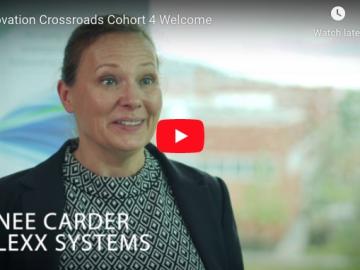
ORNL welcomed six technology innovators to join the fourth cohort of Innovation Crossroads, the Southeast’s only entrepreneurial research and development program based at a U.S. Department of Energy national laboratory.
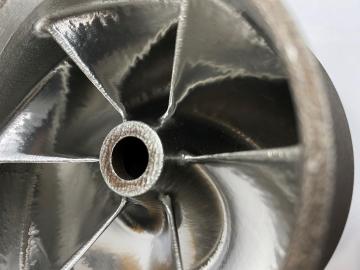
Scientists at the Department of Energy Manufacturing Demonstration Facility at ORNL have their eyes on the prize: the Transformational Challenge Reactor, or TCR, a microreactor built using 3D printing and other new approaches that will be up and running by 2023.
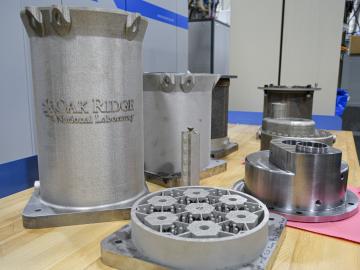
Researchers at the Department of Energy’s Oak Ridge National Laboratory are refining their design of a 3D-printed nuclear reactor core, scaling up the additive manufacturing process necessary to build it, and developing methods
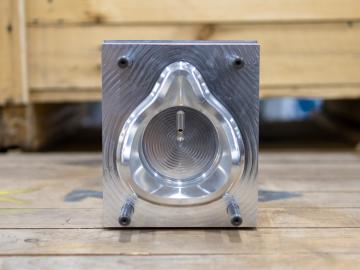
In the fight against the COVID-19 pandemic, it’s a race against the clock not only to find a vaccine but also to supply healthcare workers with life-saving equipment such as face shields, masks and test kits.

Suman Debnath, a researcher at ORNL, has been elevated to the grade of senior member of the Institute of Electrical and Electronics Engineers (IEEE).
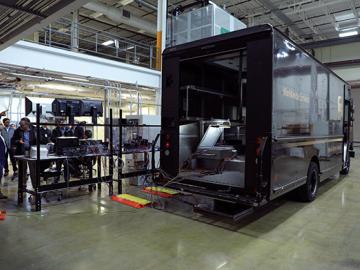
Researchers at the Department of Energy’s Oak Ridge National Laboratory (ORNL) in late February demonstrated a 20-kilowatt bi-directional wireless charging system installed on a UPS medium-duty, plug-in hybrid electric delivery truck.

In the race to identify solutions to the COVID-19 pandemic, researchers at the Department of Energy’s Oak Ridge National Laboratory are joining the fight by applying expertise in computational science, advanced manufacturing, data science and neutron science.
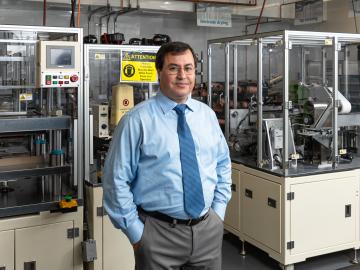
Ilias Belharouak is leading ORNL’s research efforts in investigating new materials for solid-state batteries, which can double the charging capacity of lithium-ion batteries, commonly used today for electronic devices such as cell phones.
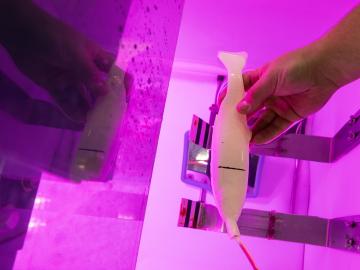
Hydropower developers must consider many factors when it comes time to license a new project or renew an existing one: How can environmental impacts be mitigated, including to fish populations?
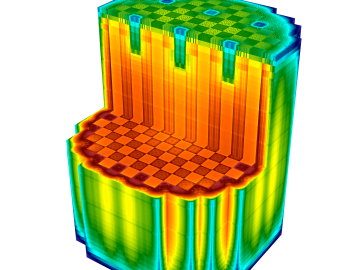
OAK RIDGE, Tenn., Feb. 19, 2020 — The U.S. Department of Energy’s Oak Ridge National Laboratory and the Tennessee Valley Authority have signed a memorandum of understanding to evaluate a new generation of flexible, cost-effective advanced nuclear reactors.


